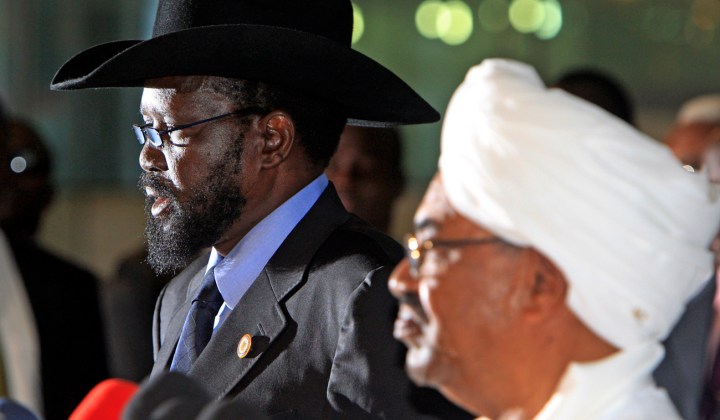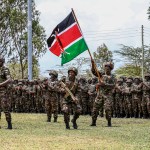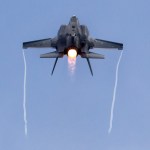Newsdeck
South Sudan, Sudan trade accusations in setback to peace deal

Sudan and South Sudan accused one another of incursions in disputed border areas on Wednesday, jeopardising plans to secure the boundary and resume cross-border oil flows.
The two former civil war foes agreed in September to end hostilities and restart vital southern oil exports through Sudan after coming close to war again in April, the worst violence since the south became independent in July 2011.
But relations have soured again in the past few days after both sides failed to agree on how to move their forces back from the unmarked joint border, something both had said must happen before oil exports resume.
South Sudan’s army said Sudanese warplanes had bombed its side of the border, killing one civilian and wounding four others, in the first such accusation since the September deal.
“Sudan bombed our people in Northern Bahr al Ghazal. The bombing happened yesterday at 2 p.m.,” army spokesman Philip Aguer said. “We were caught by surprise.”
Sudan denied the accusation, saying they had attacked a camp some 40 km (25 miles) inside Sudanese territory used by rebels who are fighting the Khartoum government.
“The armed forces conducted an internal battle deep in its territory,” Sudanese military spokesman Al-Sawarmi Khalid said in a statement on Wednesday.
“The presence of South Sudan’s army in the area … represents aggression and blatant military intervention on our land, and we have the full right to respond by dealing with them as enemy forces,” he said.
Khartoum has long accused South Sudan of backing rebels fighting the Sudanese government, something analysts find credible despite denials from Juba.
REBEL FIGHTING
Fighting between Sudan and rebels near its southern border has hampered the plan to set up a border zone. On Monday, Sudan’s state news agency SUNA said rebels from the Darfur region had set up camp in a disputed border region.
Khalid said then that the rebels had been positioned just 10 km from the border in a disputed strip of land called Samaha, or Miles-14, that was a major obstacle during the September talks.
Any delay to a resumption of the oil trade would be a serious blow to both countries.
Sudan benefits from South Sudan’s oil exports because Juba has to pay a fee for using northern pipelines and a Red Sea port. Juba halted production in January because of disputes over pipeline fees with Sudan.
South Sudan’s President Salva Kiir said on Tuesday the resumption of oil production had been delayed after Sudan had made further demands.
Concerns about delays to reopening the oil pipeline pushed the Sudanese pound to a historic low at the start of the week, highlighting the need to restart oil flows, the main source of state revenues and dollars for both countries.
Analysts say while both governments need the oil they also want to be seen as tough on the other side to shore up domestic support. DM
Photo: Sudanese President Omar al-Bashir (R) listens as his South Sudanese counterpart Salva Kiir speaks during a joint news conference, before Kiir’s departure at Khartoum Airport October 9, 2011. REUTERS/Mohamed Nureldin Abdallah



















 Become an Insider
Become an Insider